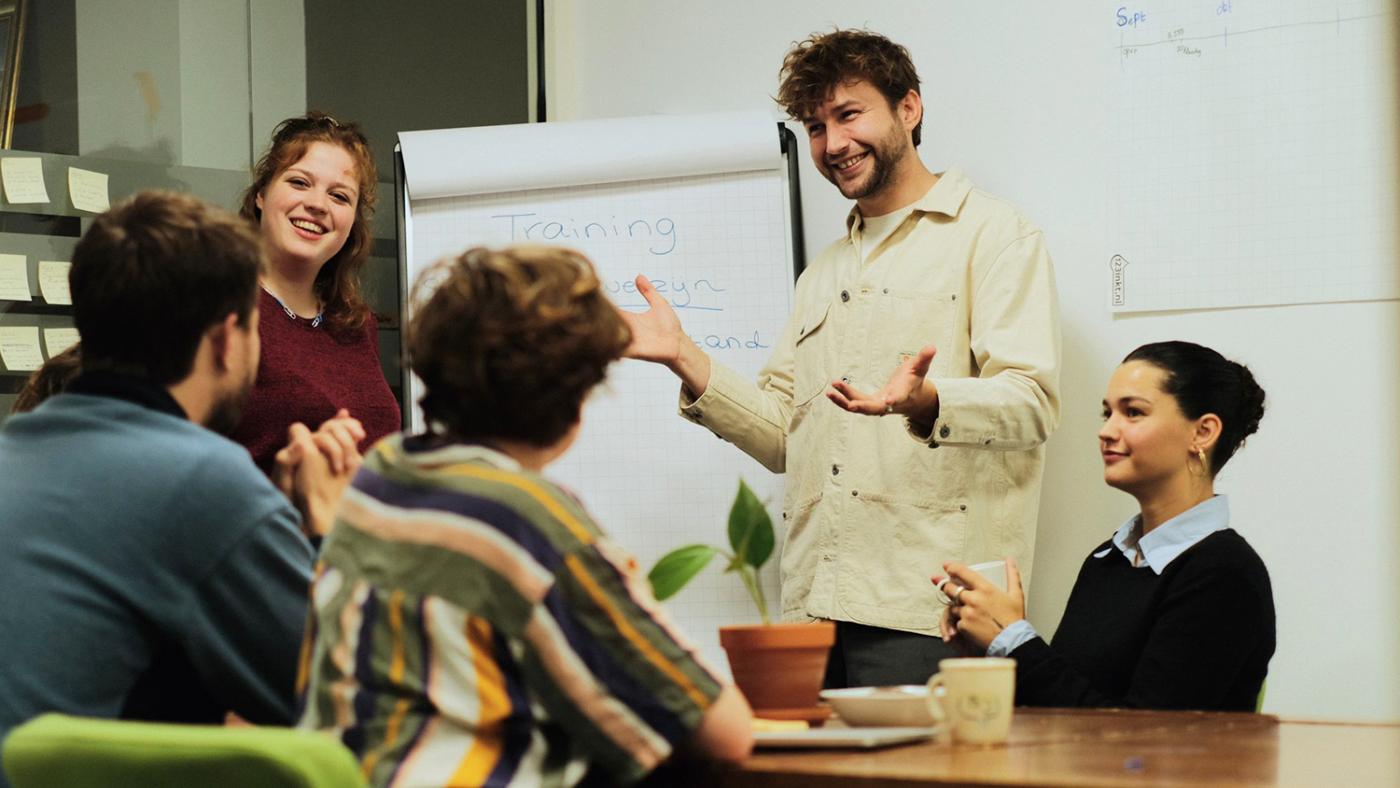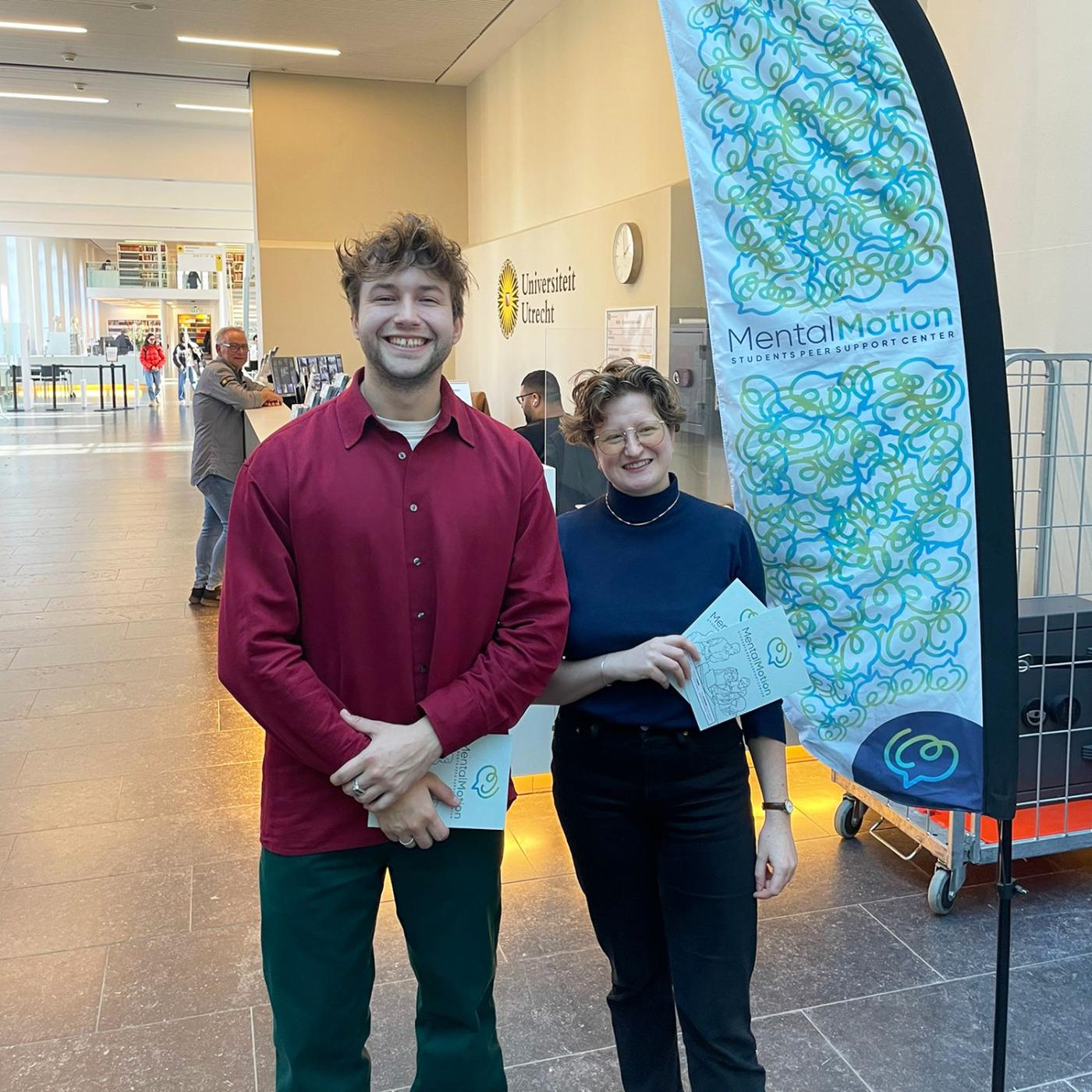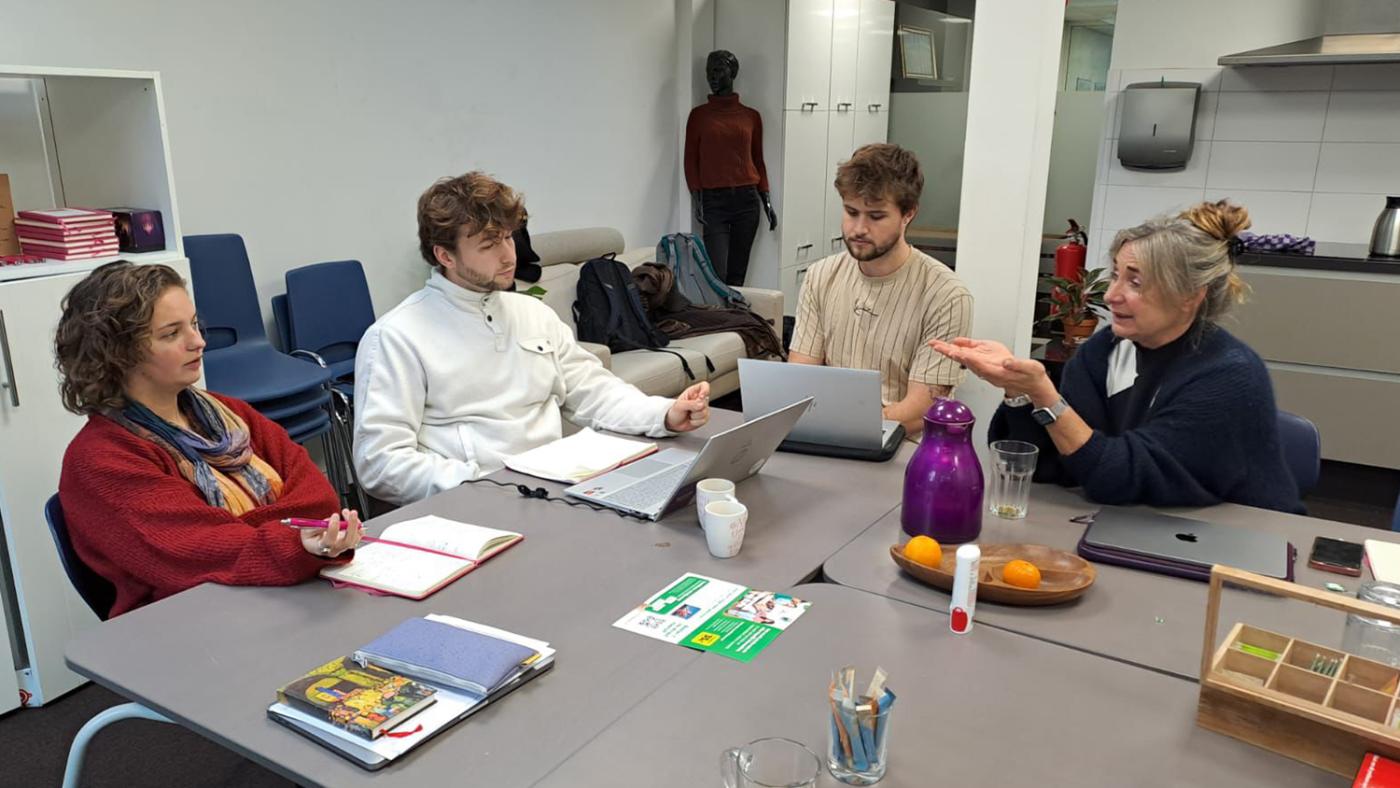A common room for young professionals
MentalMotion helps students with peer support

Marik came across the topic of mental health while serving on the board of the student union Vidius. "I was a portfolio holder for mental health. I was shocked by the number of students dealing with issues in this area, including stress, performance pressure and housing problems." That's when the idea for MentalMotion came about. "There are few initiatives for students with mental health problems that are easy to access, such as peer support. Peer support is a sort of coaching where you talk to like-minded people who have gone through the same situation or something similar."
The idea was to start offering this kind of help in Utrecht, in an approachable way. He started MentalMotion, challenged and supported by the company Power by Peers. At the time, he had just completed his Bachelor's degree in Interdisciplinary Social Sciences.
Life passing by
MentalMotion wants to be a "part of a movement", explains Marik. "We don't actually want to be classic. We want to bring something new without detracting from the wonderful support currently available. After all, mental health problems are becoming more and more common and the pressure on professional care is increasing. Students go to the psychologist because their friends and acquaintances do it too. At MentalMotion, we try to show that there are other options as well."
MentalMotion's vision focuses on meaning, ownership and participation, and this has an underlying motivation. "Many young people feel life is passing them by. They are dominated by worries and therefore don't have time to live in the moment and make friends and connections. We can't do much about their worries but we can help them deal with those by sharing our experiences. It's a bottom-up way to look at a person's needs, so to say."

Marik (left) handing out flyers
Peer support
Peer support is one of MentalMotion's pillars. Volunteers are trained to help other students individually or in a group, which "ensures they have more tools to engage in conversations," Marik explains. The organisation currently has 11 volunteers, but Marik hopes it will grow quickly.
Gijs Hilhorst (23) is one of the volunteers. He is studying Liberal Arts & Sciences (LAS) at UU and joined MentalMotion a month ago. He explains that he used to "struggle" with addiction and depression when he first joined the university. In his view, people should have a nice place to go, something he missed back in those days.
He hopes to make a positive contribution by sharing his experiences and helping other students in a non-directive way. "I think this initiative is pretty cool. I am not in an official help role, which allows me to help others casually," he says.
Living room
The communal space in Lombok is the beating heart of the initiative. It's just a five-minute bike ride from the central station. MentalMotio has a lot of space at its disposal. The building has an office space, a meeting room, and a space for one-on-one conversations. The convivial communal room offers complimentary coffee.
MentalMotion values this hospitality. After all, the organisation must be a place where "young professionals" can easily drop in, whether or not they need help. The common room is open every Monday and Friday from 11:00 am to 6:00 pm. You can use the space to study or hold a meeting with a board or committee, for free. To meet the peer supporters, you might need to make an appointment. Courses and events are also held in this space.
When they say young professionals are their target group, they mean anyone between 18 and 30 years old. "But if someone aged 32 comes in asking for help, we won't turn them away," says Marik. All students and young professionals are welcome.

The meeting room.
Not at Utrecht Science Park
Asked to explain the choice of location, Marik says: "We didn't want to be at Utrecht Science Park because we want to be separate from the space where the university and university of applied sciences teach. Besides, students following vocational education (MBO) can barely be reached at USP. The campus is out of the way for those living outside Utrecht."
However, MentalMotion is involved in an initiative by housing boards at Utrecht Science Park. The boards recently expressed their desire for a meeting space at Utrecht Science Park. "Of course, we want to be involved, but we would rather train people so they can get started themselves. We want to be a kind of oil slick that slowly spreads."
Letter of intent
MentalMotion is not completely separate from UU either. The two parties have signed a declaration of intent indicating the university's desire to work with the organisation someday. "But there are a few requirements for that," Marik explains. "For now, the declaration means that we will talk to UU twice a year and we will be introduced to student supervisors. In the future, we would like to participate in the Wellbeing Weeks, for example.’
"The letter of intent aims to encourage MentalMotion to further develop their project," says Tirza Wildeboer, project manager for student wellbeing at UU and one of the people involved in MentalMotion's Peer-Power guidance group. "We support MentalMotion's idea to increase peer support, although we think their plan is a bit short-sighted sometimes."
"In addition, we need to think carefully about what we can solve with peer-to-peer support: based on evidence, which topics are suitable for this and which are not? That is one of the caveats we brought up. We also think MentalMotion should carefully consider how they can coexist with other wellbeing initiatives and ensure all initiatives mutually reinforce each other. Other than this, we absolutely support the main idea, hence our intention to collaborate with MentalMotion in the long run. We are looking forward to seeing how their plans will develop."
Financial health
A UU-wide cooperation agreement will take some time, but together with associations and faculty, MentalMotion is already doing the necessary. "Our tool package includes workshops on positive health, mental health first aid, and humanistic interviewing. We also want to organise themed events in collaboration with the association. We always try to work with the association to see exactly where the need lies."
For example, the organisation recently organised an event with Atlas, the study association of LAS. The evening was dedicated to financial health. They also stopped by the sports council's board day to give a workshop to directors of student sports associations.
Free participation
Marik's startup currently consists of four people who get paid for their work. Volunteers also earn a small fee. Nevertheless, everything at MentalMotion is free for students. They can offer services for free thanks to sponsorships, donations and volunteers. "We're going to keep things this way for the time being," says Marik. "We are a partner of the Municipality of Utrecht until the end of 2025 and we are also supported by Dock and Oranje Fonds."